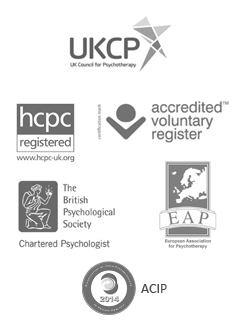Shame after a Suicide Attempt
Reader’s Question
I often sit in the middle of the night stuck with my obsessive thinking about a topic. I try to name and understand my feelings related to my suicide attempt three years ago or two; I’m not so sure about the date. Sometimes when I think about my suicide attempt I feel weak and feel humiliated by own self. I am being consumed by the idea that the people who know about my attempt are thinking that I am weak, miserable and self-conscious about the fact that I attempted to end my life. In short I really want to know more about why I get this sinking feeling. I am proud to say that I am pretty curious about psychology and aware that what I am feeling is not normal. I have tried several times to find out about it but with no results. I hope you can help me by at least naming the feeling.
Psychologist’s Reply
I think what you feel may be what many who have been in your shoes have felt before: shame. It is that feeling of guilt, regret and sadness that we all feel at times in our life. Unfortunately, shame can be a very devastating emotion that can make our situation and struggles worse, not better. Shame is an emotion of disgrace and unworthiness that comes from inside of us. However, that is only part of what someone who is in recovery from a suicide attempt must face. There is another part that is just as crippling: stigma. Stigma comes from the world around us. Society sends that message that we are flawed in some way, weak and undeserving, and that what we have done is unforgivable or taboo.
There is significant stigma around people who have thought about suicide, who have tried to kill themselves or who have even completed suicide. The messages we receive about suicide from the media, our peers, and even our families portray those who are struggling with suicide as weak, crazy or defective, and selfish. This stigma is often quite harmful and does not account for facts about depression or about the chemicals in our brain. The stigma only serves to make those who struggle with depression and suicide feel more shameful. This can even lead to more suicidal thoughts. For some of my clients, it is a cycle that can go on and on.
Although attitudes toward suicide are slowly changing for the better — we’ve seen many people speak out on the stigma of suicide when Robin Williams died, for example — unfortunately, the stigma is still strong enough in our culture that it prevents most people, especially the elderly, from talking about it. Many people are afraid to talk about suicide, which only makes it more difficult to understand and help. If we are reluctant to say anything because of how others might react, we are less likely to seek help and support from those who can provide it. A good suicide prevention program seeks to remove the stigma associated with feeling this way.
There are many aspects to our society that are shaming towards those with depression and suicidal thoughts. We often say people “commit” suicide like they would “commit” a crime or a sin. This type of language has been used to try and shame people away from killing themselves. I understand that we as a society may have good intentions with this, but it only pushes those with depression to hide and not seek help they need. It only makes it worse.
Some of the most common thoughts expressed by my clients who have tried to suicide or were thinking about it are things like “I’m weak”, “I’m a burden to everyone” and “I must be crazy.” I’ve talked about these ideas before in my article “4 Myths About Suicide.” One of the worst things this stigma does is convince us that we need to hide our feelings and struggle on our own, alone. Feeling alone with our depression only serves to make it feel more intense. Often I hear my clients say that they won’t talk about it because family, friends, and doctors won’t understand. I can’t promise you that everyone you want to understand will (maybe because they have bought into the negative messages and stigma), but you are not alone. There are many out there who have had to deal with this just like you, and finding people who understand is helpful in recovering from a suicide attempt. Whether you find them in your family, friends, social network, or in a depression support group, it can be life changing. There are plenty of online resources as well to help you begin to understand what it means to recover from this, including at Waking Up Alive, What Happens Now?, and beyondblue. For many of us who know someone who is dealing with depression, we are often afraid to ask if they are thinking about suicide. Just asking, however, can go a long way toward helping reduce the stigma around it by saying it’s alright to talk about it.
Please read our Important Disclaimer.
All copyrights for this article are reserved to ask a therapist


Recent Comments